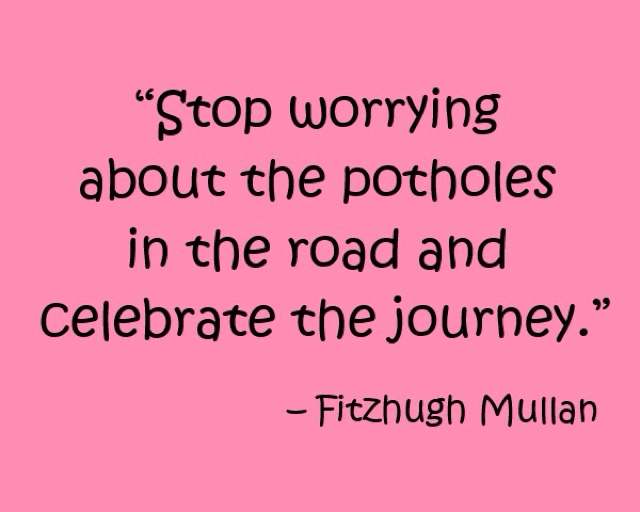The Fantasy World and Good vs Evil
I have just read the most insightful article on Tolkien's Middle-Earth and how the stories are not about a world in the balance between good and evil, but a world that is always in danger of being overtaken by the darkness (read it here). It clearly highlights the Christian narrative that he wove into his stories, but it also explores the ways in which he altered that narrative to create a world that was always on the edge of falling into darkness.
While I agree that his cosmogony sets up a more unbalanced world through a fall before the creation, I think that he was still trying to explain through his faith and his experiences what his saw in this world. Consider that Tolkien fought in the First World War and lost most of his close friends in battle. That was by far the darkest period in modern history - until the Second World War, anyways. How can a man living through all of that violence and destruction understand or come to terms with the darkness all around him? It appears that Tolkien negotiated his experience with his faith in Middle Earth. In his world, evil is part of the foundation. The fall of a divine figure thus necessitates the fall of man and continues to darken human history. Nonetheless, there is a certain hope, no matter how small or unreachable it may seem, that things can get better.
Interestingly, I think that this is another one of those elements that so closely ties Robert Jordan's Wheel of Time series to those of Middle Earth. Jordan creates a world in which the darkness must eventually be defeated, and yet the cyclical nature of time and of the narrative makes it more than likely that the darkness will continue to attempt to swallow the world. The servants of darkness are continually reborn or replaced, wars tear the world in half, and even the man prophesied to save the world is tainted by dark forces. And yet, there is hope that the Light can and will succeed, just as it does at the end of the series.
Perhaps it is this aspect of these series that has always drawn my attention, even though I could not see it. I always knew that these books were so much more complex than a fairy-tale story of good versus evil, but now I understand why. This somehow seems so much more authentic, and it makes the struggle for good and the message of hope so much more significant. Perhaps that is also why both authors chose to draw so much biblical imagery and allusion into their work. It reflects the brokenness of our world and the importance of faith.
While I agree that his cosmogony sets up a more unbalanced world through a fall before the creation, I think that he was still trying to explain through his faith and his experiences what his saw in this world. Consider that Tolkien fought in the First World War and lost most of his close friends in battle. That was by far the darkest period in modern history - until the Second World War, anyways. How can a man living through all of that violence and destruction understand or come to terms with the darkness all around him? It appears that Tolkien negotiated his experience with his faith in Middle Earth. In his world, evil is part of the foundation. The fall of a divine figure thus necessitates the fall of man and continues to darken human history. Nonetheless, there is a certain hope, no matter how small or unreachable it may seem, that things can get better.
Interestingly, I think that this is another one of those elements that so closely ties Robert Jordan's Wheel of Time series to those of Middle Earth. Jordan creates a world in which the darkness must eventually be defeated, and yet the cyclical nature of time and of the narrative makes it more than likely that the darkness will continue to attempt to swallow the world. The servants of darkness are continually reborn or replaced, wars tear the world in half, and even the man prophesied to save the world is tainted by dark forces. And yet, there is hope that the Light can and will succeed, just as it does at the end of the series.
Perhaps it is this aspect of these series that has always drawn my attention, even though I could not see it. I always knew that these books were so much more complex than a fairy-tale story of good versus evil, but now I understand why. This somehow seems so much more authentic, and it makes the struggle for good and the message of hope so much more significant. Perhaps that is also why both authors chose to draw so much biblical imagery and allusion into their work. It reflects the brokenness of our world and the importance of faith.

Comments
Post a Comment